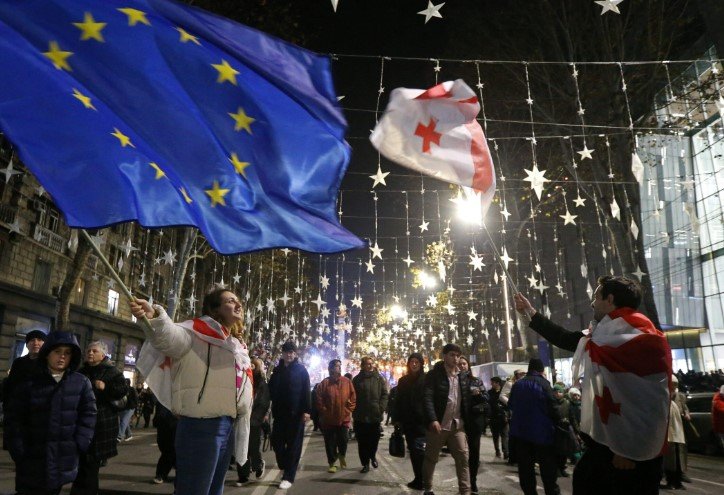The United Kingdom has taken a significant step by suspending the “Wardrop Dialogue” and other collaborative programs with Georgia, marking a pivotal moment in their diplomatic relations. This decision, announced by UK Ambassador Gareth Ward, comes in response to what the UK perceives as alarming anti-democratic actions by the Georgian government. For the first time in a decade, the annual high-level talks that have been a cornerstone of UK-Georgia relations are on hold.
A Shift in Diplomatic Relations
The suspension of the Wardrop Dialogue is unprecedented since its inception in 2014. This dialogue has served as a platform for discussing various cooperation issues, including security, defense, and economic policies. The UK’s decision to freeze these talks reflects deep concerns over recent legislative actions in Georgia that have raised eyebrows in the West.
- Key Points of Concern:
- Passage of a law restricting civil society activities.
- Promotion of conspiracy theories by government officials.
- A pledge to ban opposition parties as part of the ruling party’s election platform.
Ambassador Ward expressed disappointment over the Georgian government’s trajectory, emphasizing that the UK had hoped for a collaborative effort to bolster Georgia’s resilience and prosperity. Instead, the recent developments have led to a significant strain in relations, prompting the UK to reassess its engagement with Tbilisi.

The Impact of Legislative Changes
The UK’s concerns are rooted in specific legislative actions taken by the Georgian parliament. The law aimed at curtailing civil society activities has sparked widespread protests and public outcry. Many Georgians view this as a direct threat to democratic freedoms and civil liberties.
- Public Response:
- Mass protests against the civil society law.
- Calls for the government to uphold democratic values.
- Increased scrutiny from international observers regarding Georgia’s political climate.
Ambassador Ward noted that the Georgian government had previously committed to not advancing such legislation, making the recent developments particularly disheartening. The ambassador’s remarks highlight a growing disconnect between the Georgian government and its Western allies, raising questions about the future of Georgia’s Euro-Atlantic aspirations.
Historical Context of the Wardrop Dialogue
The Wardrop Dialogue, named after Sir Oliver Wardrop, a British diplomat known for his contributions to Georgian studies, has been a vital mechanism for fostering UK-Georgia relations. Established in 2014, the dialogue has facilitated discussions on a range of issues critical to both nations.
| Year | Event |
|---|---|
| 2014 | Inaugural session held in London. |
| 2015 | First meeting in Tbilisi. |
| 2016 | Focus on security cooperation. |
| 2017 | Economic partnership discussions. |
| 2024 | Dialogue suspended due to political concerns. |
The dialogue has not only addressed security and defense matters but has also aimed to strengthen economic ties. However, the recent suspension raises concerns about the long-term implications for Georgia’s strategic partnerships and its aspirations for closer ties with the West.
Looking Ahead: A Hope for Change
Despite the current tensions, Ambassador Ward remains hopeful for a shift in the Georgian government’s approach following the upcoming elections. He emphasized the importance of restoring trust and returning to a pro-Western course.
- Future Expectations:
- A call for the Georgian government to demonstrate commitment to democratic principles.
- Anticipation of a renewed partnership post-elections, regardless of the ruling party.
- A focus on rebuilding relationships with Western allies.
The ambassador’s comments reflect a desire for Georgia to reaffirm its commitment to Euro-Atlantic integration, which has been a cornerstone of its foreign policy. As the political landscape evolves, the UK and other Western partners will be closely monitoring developments in Georgia, hoping for a return to a collaborative and constructive relationship.
